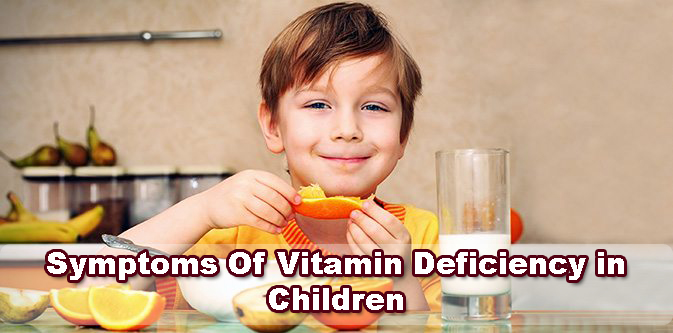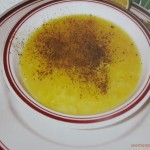
Vitamin deficiencies will cause a variety of diseases in children, as well as some diseases may occur as a result of. Pediatric health and diseases specialist Asst. Assoc. Dr. Ferit Durankuş gave important information about vitamin deficiency in children.
Pediatric health and diseases specialist Asst. Assoc. Dr. Ferit DurankuşS ” vitamin deficiencies caused by many diseases, reasons must be investigated.
In this season when air temperatures fall, is necessary to eat foods rich in vitamins to protect against infections and to increase body immunity. In process of washing, storing and cooking foods, a significant portion of vitamin content is lost.
If we can’t get enough vitamins naturally, we should use them as supplements. For example, during winter months, need for vitamin D increases in children because we can not benefit from less sunlight. Children are exposed to viruses and bacteria in their environment.
The foods they consume in schools, outdoors and even in their homes may be natural habitat of these germs. Children’s immune system is more resistant to germs when works well, reducing risk of getting diseases. Inadequate and unbalanced nutrition leads to weakening of immune systems in seasonal changes.
Editor’s Pick:
Asst. Assoc. Dr. Ferit Durankus, ” in children under 3 years of age, immune systems fall more frequently and if this situation is detected with some support can be more comfortable.
First of all, is very important to take vitamins C and e. Other than that, you should not neglect to eat fresh fruits and vegetables. Nutritional irregularity is most important health problem that triggers other diseases today.
Protein-calorie deficiencies, vitamin deficiencies (especially Vitamin A, C and E), especially in backward countries are seen and children under age of 5 are the primary cause of death. Therefore, keeping immune system in balance is very important. For this reason, is important that vitamins and minerals that are necessary for general body health are met from natural nutrients.
Nutrition programs, which provide adequate amounts of food for children, contribute to both school success and healthy growth and development. If necessary, vitamin supplements should be provided under supervision of the doctor. ‘
But if unconscious vitamin supplementation is used, it will hurt the child. There are vitamins that dissolve in fat and water. Taking vitamin A, D, K, E may cause toxic effects or cause disease.
Vomiting, diarrhea, kidney stones, calcification in the kidneys and joints such as arthritis may have adverse consequences. Water-soluble vitamins are B and C vitamins. Water-soluble vitamins have no side effects because they can be excreted in urine.

Symptoms Of Vitamin Deficiency In Children
The most important symptom is stress in growth and development.
• Frequent infection , diarrhea, scalping of the scalp, late healing of skin wounds, tooth decay, fatigue, weakness, headache, behavioral disorders, swelling in joints, forgetfulness are the symptoms of vitamin deficiency.
Vitamin Intake For Children Is Especially Important Periods
• In children, importance of vitamin intake, especially growth is accelerated periods.
• These periods are infancy, childhood and adolescence. The ages of 0-3, 5 years, 10 years with onset of puberty, i.e., close control is essential during these periods.
Children Should Eat Rich Vitamins During Winter
In winter and in this period when schools start again, will be appropriate for children to be fed with foods containing vitamin A, C, D and E to strengthen their immune system.
Especially in the morning breakfast every child should drink at least; 1 egg and 1 cup of milk. Other sources include red and green peppers, broccoli, cabbage, celery, radishes, green leafy vegetables such as broccoli and spinach, onions and garlic are foods that must be consumed and strengthen immunity.
Omega-3 fatty acids in fish and nuts support immunity. It is recommended to consume fish and walnuts at least once a week. Fruits, especially orange, tangerine, Kiwi, apples, pears and lemon contents are prominent.
At least 1 orange, 1 kiwi or 2 tangerine per day meet the daily vitamin C needs of school-age children.
1 egg and 1 cup of milk. Other sources include red and green peppers, broccoli, cabbage, celery, radishes, green leafy vegetables such as broccoli and spinach, onions and garlic are foods that must be consumed and strengthen immunity.
Omega-3 fatty acids in fish and nuts support immunity. It is recommended to consume fish and walnuts at least once a week. Fruits, especially orange, tangerine, Kiwi, apples, pears and lemon contents are prominent.
At least 1 orange, 1 kiwi or 2 tangerine per day meet the daily vitamin C needs of school-age children.
Menu Choice For Feeding Bag
* Freshly squeezed fruit juice, milk or ayran
* Homemade pastry, pretzels or homemade cake
* Baked meatballs, sandwiches or chicken in a nonfat oven
* Fruit (1 small size Apple, 1 medium size orange, 1 large size Mandarin, 1 bunch of grapes or one of 5 plums shaped options)











